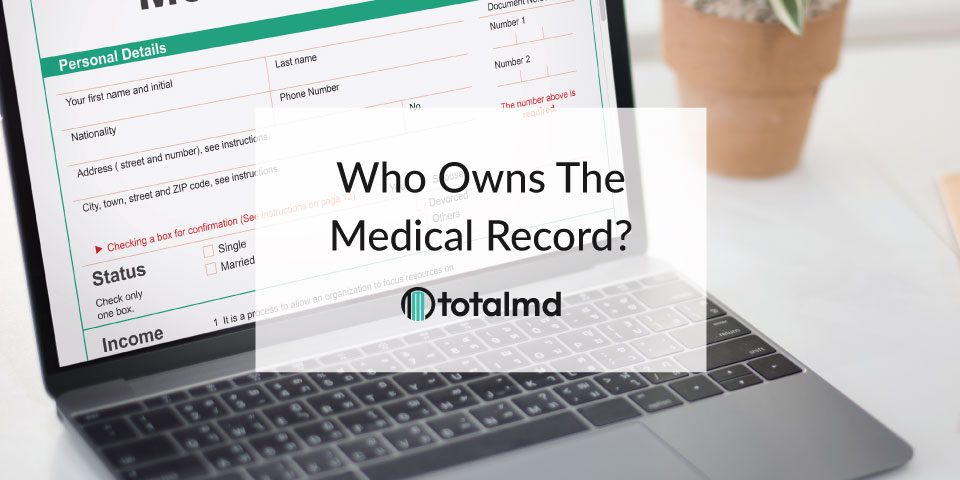Who Owns the Medical Record?

The documentation of a patient’s medical history and care is known as a Medical Record and can be in either a paper or electronic form. They are also referred to as medical charts or health records. Due to the personal nature of the information in the Medical Record, there are issues of privacy and security as well as access, accuracy, storage, and disposal of these documents.
These records are considered legal documents are covered by the laws of the state and then the country where they are created. The chart below shows whether your state has their own laws, or if your state will fall under federal guidelines, which do not empirically state who owns the record. HIPAA states that the patient owns their own information, with very few exceptions, and they have the right to receive a copy of the information.

(Health Information and the Law, n.d., figure 1)
In the states that fall under Federal Guidelines, the medical records belong to the provider, practice or facility that created the record. Traditionally, the medical record has been thought to be owned by the patient as the information is about the person. However, as the graphic above shows, twenty states have definitively ruled that the medical record belongs to the provider or the facility that originated the record. The other states go back to the Federal ruling and HIPAA guidelines. Per HIPAA, the patient must be given copies of their medical record upon request, however, the patient can be charged a reasonable fee to produce this copy. The last state, New Hampshire, has ruled that the patient owns the medical record.
In the article, Medical Records Policy, it is stated that, “The media containing the information or data belongs to the organization maintaining the record – this could be a hospital, physicians’ practice, clinic, etc.” This is just an opinion, not a legal statute, however; I have found it over and over again in my research.
The bottom-line to patient records, either paper or electronic, is this:
- The patient owns the data, so it cannot be shared indiscriminately
- In New Hampshire, the patient owns the actual record
- In 20 states, the provider or facility owns the record
- In the remaining states, it is not abundantly clear who owns the physical record, but the opinion of the larger group is the provider or the facility
- Does the practice or the provider own the record should the provider retire? Unclear. The general consensus of opinion is that the practice owns the actual record as they are maintaining it.
There is plenty of research out there for you to follow in your own state. Simply Google “who owns the medical record.” Many articles will offer a graphic similar to the one included here with interactive links to the appropriate site(s) for your state.
___________________
Health Information and the Law. (n.d.). http://www.healthinfolaw.org/state
Medical Records Laws Medical Records Policy. (2019). Retrieved from https://www.all-things-medical-billing.com/medical-records-laws.html
Rowley, R. (2009, December 1). Who “owns” a shared medical chart? [Blog post]. Retrieved from https://www.practicefusion.com/blog/who-owns-shared-medical-chart/
Royal, K. (2019). WHO OWNS PATIENT MEDICAL RECORDS? []. The Journal of Urgent Care Medicine. Retrieved from https://www.jucm.com/owns-patient-medical-records/



